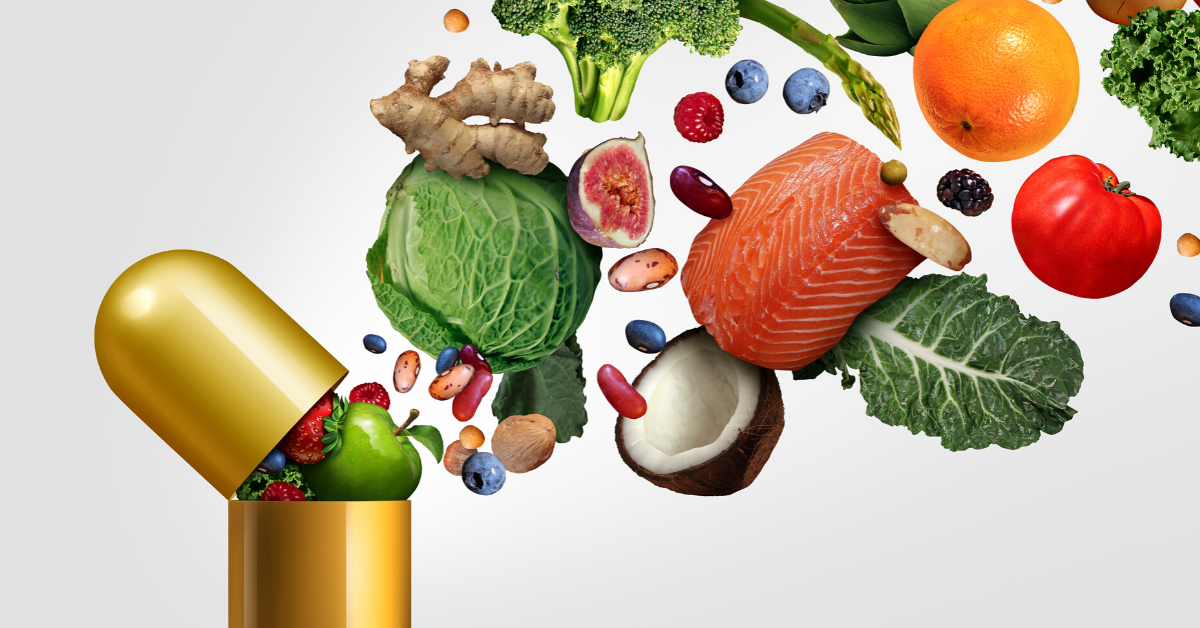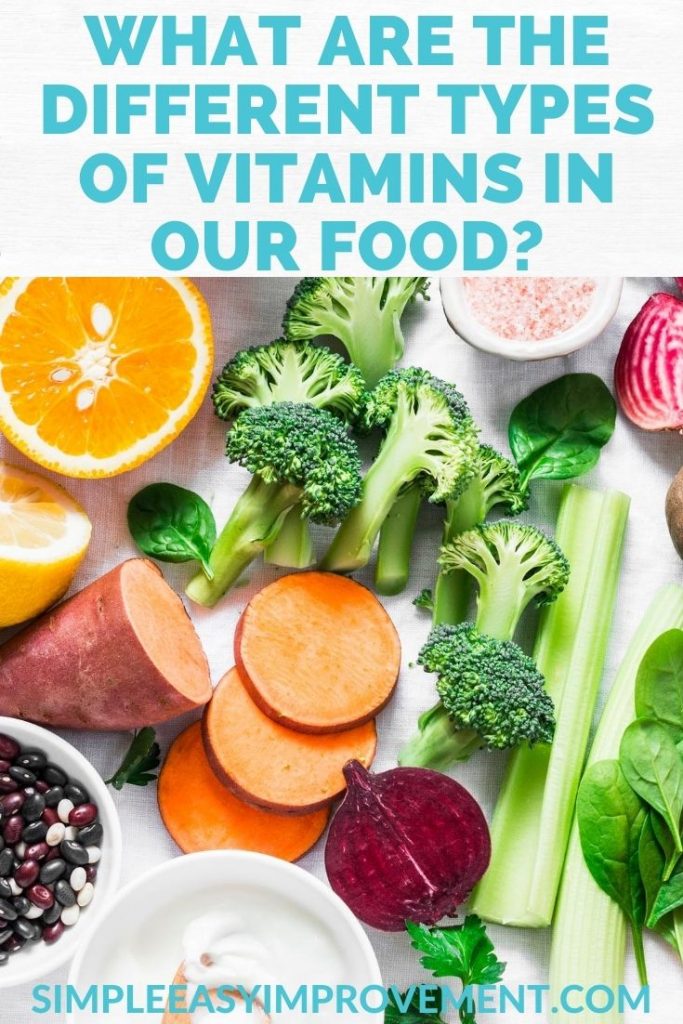
Whenever we are reading the nutritional value at the back of any food or packaged items, a lot of different Vitamin types jump up at us, from Vitamin A to Vitamin K, and everything in between. Most of us know the importance and the functions of the major Vitamin types that we consume every day, but do we know everything?
If you have been wondering about exactly how many different types of Vitamins there are in our food, and how they are good for us, here is your answer. Read on and you will know everything there is to know about the different types of vitamins that are a part of our everyday life.
Types of Vitamins
Mainly, Vitamins can be divided into two categories: water-soluble vitamins and fat-soluble vitamins. Water-soluble Vitamins are the ones that are expelled by the body when the total amount isn’t absorbed, and the Fat-Soluble Vitamins are the ones that are stored in the liver and the fat tissues are leftover reserves.
The eight Vitamin-B (Vitamin B1, Vitamin B2, Vitamin B3, Vitamin B5, Vitamin B6, Vitamin B7, Vitamin B9, and Vitamin B12), and Vitamin C are the water-soluble vitamins and Vitamin A, Vitamin D, Vitamin E and Vitamin K are the fat-soluble ones.
All About Vitamins
Now, we’ll learn about the prominent sources of these vitamins, as well as how and why they are important for our good health.
- Vitamin B1
Vitamin B1 is also known as Thiamin and comes from enriched whole grains, nuts, livers and seeds, ham, watermelon, acorn squash, soymilk, and legumes. This vitamin helps the body to change our carbohydrate intake into energy, especially during a woman’s pregnancy and lactation days. Vitamin B1/Thiamin is also important for our heart and nerve cells.
- Vitamin B2
We know Vitamin B2 more commonly as Riboflavin, found mainly in whole grain, milk and other dairy products, enriched cereals, muesli, granola and bread, and in leafy green vegetables. Vitamin B2 is extremely important for our body growing, and for the body’s production of red blood cells.
- Vitamin B3
Vitamin B3 is also known as Niacin, and you can find this very important nutrient in fish, poultry, meat, mushroom, fortified and enriched whole wheat, and potatoes. Vitamin B3 is responsible for healthy skin and nerves and also lowers the negative effects of cholesterol in our body.
- Vitamin B5
Found in chicken, broccoli, mushrooms, avocados, and whole grains, Vitamin B5 is also known as Pantothenic Acid. This particular nutrient is responsible for the production of cholesterol and hormones in our body.
- Vitamin B6
Vitamin B6 has the responsibility of maintaining our brain functions and forming red blood cells. Besides, Vitamin B6, also known as Pyridoxine, has an important role to play in many of the chemical reactions that protein plays inside our body. In fact, the more protein-enriched food we eat, the more Vitamin B6 our body needs.
All kinds of fish, meat, vegetables, fruits, and poultry are excellent sources of Vitamin B6.
- Vitamin B7
We also know Vitamin B7 as Biotin, found primarily in fruits and some healthy meats. Just like Niacin, Biotin is required in the production of cholesterol and hormones and helps our metabolism.
- Vitamin B9
Freshly squeezed orange juice, spinach, and asparagus, legumes (especially chickpeas and black-eyed peas, seeds, broccoli, and legumes – these are the foods rich in Vitamin B9, also known as Folate or Folic Acid. These days, Folate is added to enriched whole grains and cereal, for a better, more nutritious breakfast. Folate or Vitamin B9 works with Vitamin B12 in forming new red blood cells, controlling the growth of tissue and forming cells.
This particular vitamin is especially needed in pregnant women, and they have usually prescribed Folic Acid tablets as supplements. Lack of Folic Acid during pregnancy can be quite dangerous for the growing fetus, actually leading to birth defects like spina bifida, i.e. a problem with the backbone and the spine.
- Vitamin B12
Vitamin B12 can be found in fish, milk, dairy products and cheese, fortified cereals and fortified soymilk, meat, and poultry, and is also known as Cobalamin. Cobalamin is extremely important for proper nerve functions, the formation of new cells, especially in forming red blood cells. This vitamin is also very important for our metabolism.
Vitamin B12 is not found in any plant source, which means that vegetarians and vegans often miss out on this nutrient. For anyone who doesn’t eat meat or animal products, Vitamin B12 should be obtained via supplements.
- Vitamin C
The main and the most prominent sources of Vitamin C happens to be citrus fruits, i.e. oranges, grapefruits, lemons and limes, mandarins and tangerines. At the same time, Vitamin C can also be found in potatoes, bell peppers, strawberries, Brussels Sprouts, spinach, broccoli, and tomatoes. This is mainly a plant-based nutrient that you can also find from some packaged fruit juices.
The contribution of Vitamin C, also known as Ascorbic Acid, in healthy gums and strong teeth cannot be denied. Besides, Vitamin C helps our body absorb iron from food sources and maintains our tissues. Vitamin C-enriched fruits are very helpful in healing wounds after an injury or accident.
Vitamin A, D, E and K are known as the fat-soluble vitamins that are not excreted by the body. They are important for good health but doesn’t need to be consumed every day or in a large amount. The excess amount is stored in the body, and too much consumption can actually prove to be toxic for us.
- Vitamin A
Vitamin A helps in maintaining our teeth, soft tissue, bones and skin, and our mucous membranes. This particular nutrient can be found in both plant- and animal-sources, especially in fortified milk, cream, cheese and butter, margarines, liver and eggs, and in leafy green vegetables, orange fruits such as cantaloupes and apricots, and any kind of orange vegetables, i.e. pumpkins, carrots, sweet potatoes, and winter squash.
Vitamin A is very important for our immune system, especially in the case of young and growing children.
- Vitamin D
The best source of Vitamin D is, of course, from the sun! Spending 10 minutes under the sun every day is enough for all our Vitamin D needs, but this nutrient can also be found in fortified dairy products and cereals. Known as the Sunshine Vitamin, Vitamin D helps the body absorb Vitamin C from food sources, and is important for proper maintenance and development of bones, gums, and teeth.
Vitamin D can be found in supplements if it is not possible to get sunshine every day, and also helps in maintaining a proper balance of phosphorus and calcium in our blood.
- Vitamin E
Vitamin E is actually a kind of antioxidant, also known as Tocopherol. You can get Vitamin E from certain leafy greens, liver and eggs, nuts, seeds, and plant oils, especially corn oil, soybean oil, safflower oil, and cottonseed oil. This antioxidant is the formation of red blood cells with the help of Vitamin K.
- Vitamin K
You can get Vitamin K from kales, spinach, collard greens, broccoli, asparagus, and Brussels Sprouts, and this vitamin is needed for proper clotting of blood.
A healthy diet with lots of fruits and vegetables, plenty of proteins and just the right amount of enriched whole wheat – that’s all we need to make sure we are getting the right kinds of vitamins for our health. A diet that is full of healthy food has all the nutrition you are ever going to need to live a healthy life, so there’s no need to worry about not getting enough if you are eating right.



